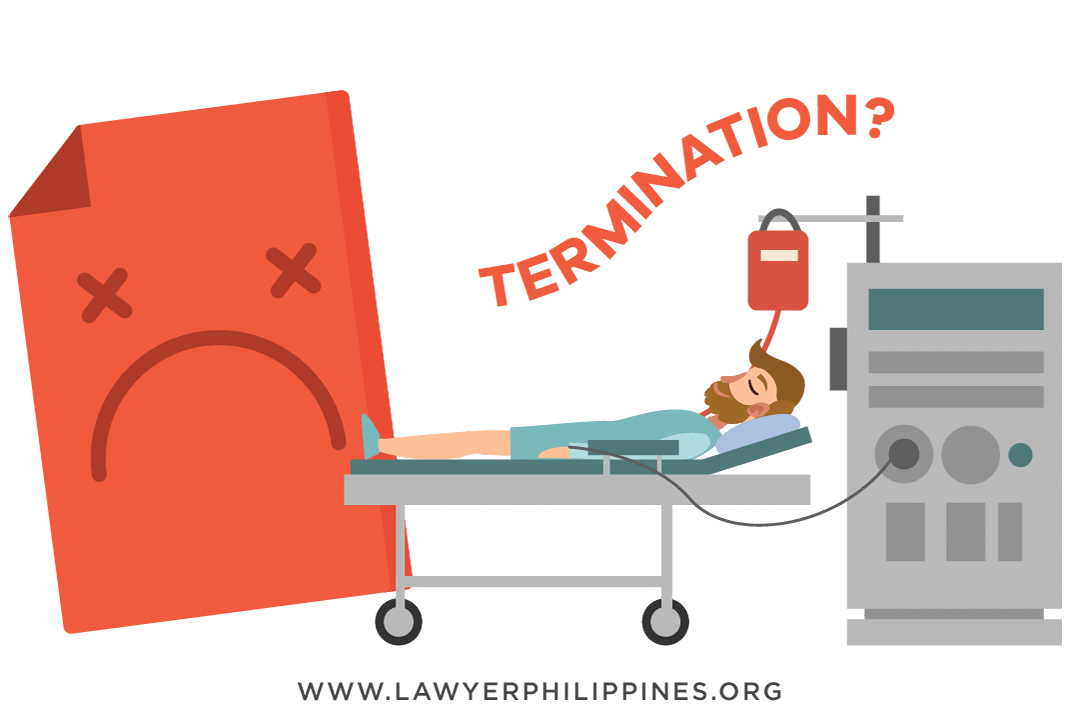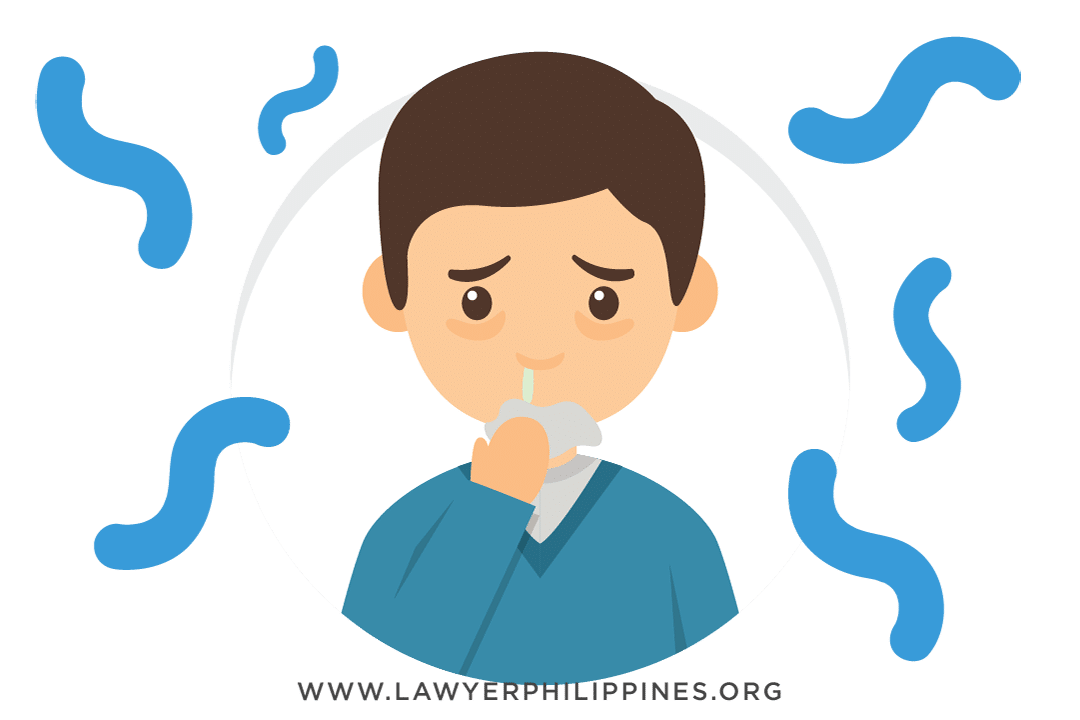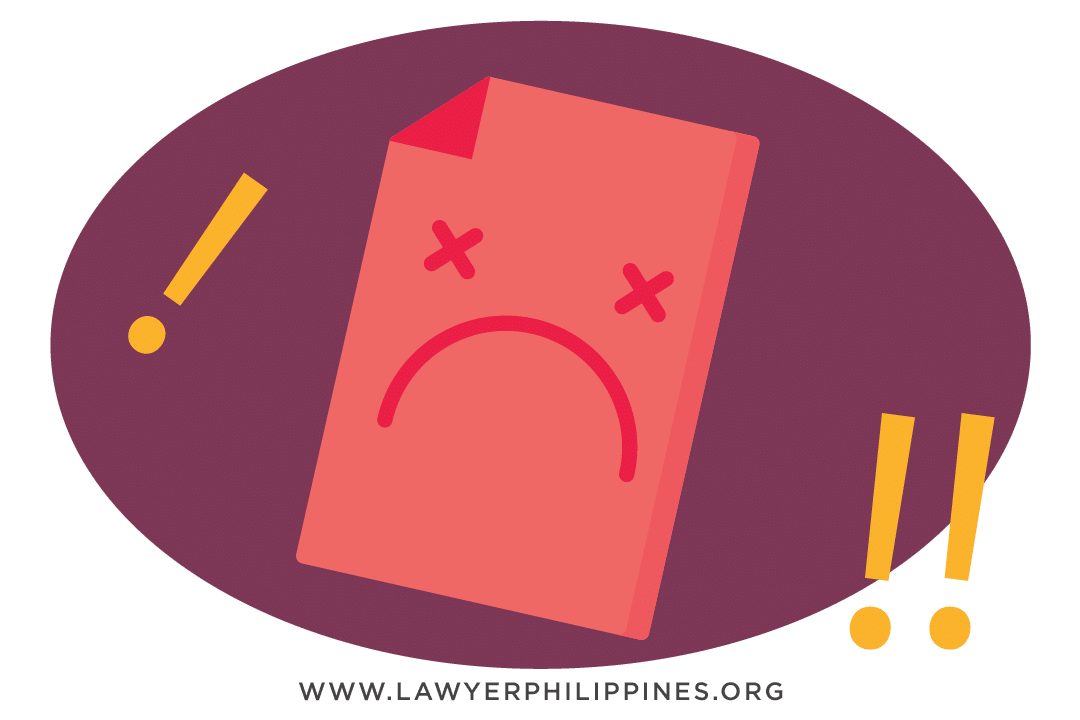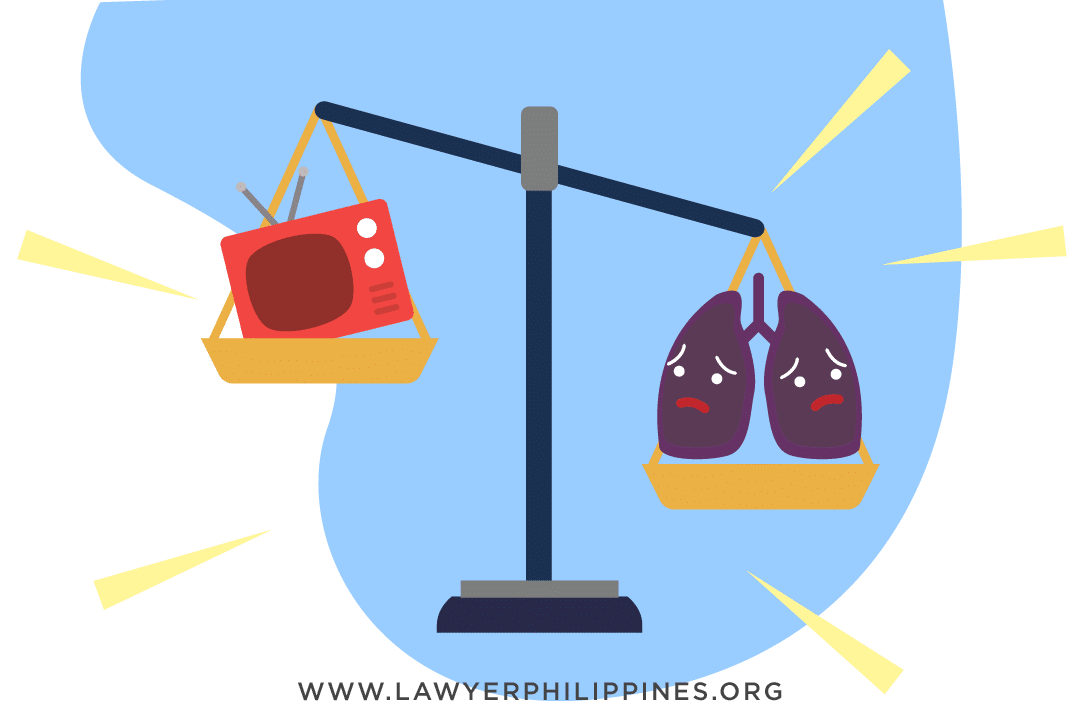Termination due to Illness (Philippines)

Yes, an employee can be validly terminated for health reasons.
Philippine labor law is structured to give full protection to the rights of the workers.
Consequently, there are specific, prescribed reasons and processes for validly terminating employment.
The discussion below tackles valid termination due to health reasons.
Can You Terminate for Health Reasons?
However, as with all things related to employee termination in the Philippines, you need to do this in accordance with the law.
The law is found in Article 299 [previously Article 284] of the Philippine Labor Code and the Omnibus Rules Implementing the Labor Code.

Termination due to health reasons must be according to the law.
These provide that an employer may terminate an employee suffering from a disease if:
- His continued employment is prohibited by law
- Is prejudicial to his health as well as those of his co-workers
- There is a certification by a competent health authority that it is of such a nature or such a stage that it cannot be cured in 6 months even with medical treatment
Note that if the disease can be cured within 6 months, the employer can ask the employee to take a leave of absence. When the employee returns to good health, he should be reinstated to his former position.

Termination due to health reasons may incur separation pay.
Note as well that, if you are terminating an employee due to health reasons, you will have to pay separation pay.
Separation Pay must be at least one (1) month salary or to one-half (1/2) month salary for every year of service, whichever is greater, a fraction of at least six (6) months being considered as one (1) whole year.
What diseases are covered?
The law contemplates particular types of diseases. Among these are diseases where continued work would further compromise the employee’s health.

What diseases are covered when you terminate for health reasons?
This is particularly clear in the Baby Bus, Inc. vs. Minister of Labor [G.R. L-54223, February 26, 1988]. The Supreme Court here ruled that the several heart attacks experienced by an employee were clear indications that working would further compromise his health. The employee’s claim of illegal dismissal was dismissed.
Another requirement is that the disease cannot be cured in 6 months.
For example, in Deoferio vs. Intel, [G.R. No. 202996, June 18, 2014] a doctor certified that the employee’s schizophrenia could not be cured in 6 months. Here the Supreme Court upheld the dismissal.

Can the illness be cured in 6 months?
The law also covers diseases that are contagious and which would be detrimental to the health of the employee’s co-workers. But the employer’s characterization of the disease cannot be arbitrary nor without expert basis.
For example, although advanced tuberculosis can be such disease, a competent public health official must nevertheless certify this when the employee’s disease is invoked as a ground for termination.
Certification from a Competent Health Authority Important
The Supreme Court has held that:
The requirement for a medical certificate under Article 284 of the Labor Code cannot be dispensed with; otherwise, it would sanction the unilateral and arbitrary determination by the employer of the gravity or extent of the employees illness and thus defeat the public policy on the protection of labor. (G.R. No. 129584)

Have you secured a medical certificate regarding the employee’s condition?
This was later upheld in Crayons vs. Pula (G.R. 167727) despite the fact that the employee had been absent for 6 months.
In the Crayons vs. Pula case, it was further aggravated by the fact that the company seemed to lack documentary evidence and presented very little evidence.
Process Required for Termination due to Health
This can cause confusion because there are two distinct processes for termination of employment under the law:
- Termination for Just Causes
- Termination for Authorized Causes
The processes are different depending on which type of termination it is.

In Termination for Just Causes, the following process must be followed.
For instance, termination for Just Causes requires you to fulfill the two notice rule:
- A notice of intent to dismiss specifying the ground for termination, and giving said employee reasonable opportunity within which to explain his or her side;
- A hearing or conference where the employee is given the opportunity to respond to the charge, present evidence or rebut the evidence presented against him or her;
- A notice of dismissal indicating that upon due consideration of all the circumstances, grounds have been established to justify termination.
Termination for Authorized Causes follows a different process:

In Termination for Authorized Causes, the following process must be followed.
- In a termination for an authorized cause, due process means a written notice of dismissal to the employee specifying the grounds at least 30 days before the date of termination. A copy of the notice shall also be furnished the Regional Office of the Department of Labor and Employment (DOLE) where the employer is located.
You’re probably wondering which process health reasons fall under.
Health reasons have historically been classified as an authorized cause for termination. Thus, in the discussion in Agabon vs. NLRC [G.R. No. 158693, Nov. 17, 2004] the Supreme Court says:
Procedurally … and (2) if the dismissal is based on authorized causes under Articles 283 and 284, the employer must give the employee and the Department of Labor and Employment written notices 30 days prior to the effectivity of his separation.
However, the Supreme Court walked back on this pronouncement in other decisions.

Which process does termination due to illness fall under?
In 2014, it ruled in Deoferio vs. Intel [G.R. No. 202996], that:
In Sy v. Court of Appeals and Manly Express, Inc. v. Payong, Jr., promulgated in 2003 and 2005, respectively, the Court finally pronounced the rule that the employer must furnish the employee two written notices in terminations due to disease, namely: (1) the notice to apprise the employee of the ground for which his dismissal is sought; and (2) the notice informing the employee of his dismissal, to be issued after the employee has been given reasonable opportunity to answer and to be heard on his defense.
Thus, due process in the form of the two notice rule has since applied to terminations for health reasons.

Jurisprudence states that the 2 notice rule is applicable in termination for illness.
In Fuji vs. Espiritu [G.R. No. 204944-45, December 3, 2014], decided later that same year, the Supreme Court briefly discussed what this due process entails:
For dismissal under Article 284 to be valid, two requirements must be complied with: (1) the employee’s disease cannot be cured within six (6) months and his “continued employment is prohibited by law or prejudicial to his health as well as to the health of his co-employees”; and (2) certification issued by a competent public health authority that even with proper medical treatment, the disease cannot be cured within six (6) months. The burden of proving compliance with these requisites is on the employer. Noncompliance leads to the conclusion that the dismissal was illegal.
There is no evidence showing that Arlene was accorded due process. After informing her employer of her lung cancer, she was not given the chance to present medical certificates. Fuji immediately concluded that Arlene could no longer perform her duties because of chemotherapy. It did not ask her how her condition would affect her work. Neither did it suggest for her to take a leave, even though she was entitled to sick leaves. Worse, it did not present any certificate from a competent public health authority. What Fuji did was to inform her that her contract would no longer be renewed, and when she did not agree, her salary was withheld. Thus, the Court of Appeals correctly upheld the finding of the National Labor Relations Commission that for the failure of Fuji to comply with due process, Arlene was illegally dismissed.
Thus due process requires not only that the disease’s incurability within 6 months must be established, and this supported by certification of a competent public health authority, but also that the employee should be informed and given the opportunity to respond to the findings.
18 Comments
Trackbacks/Pingbacks
- 2018 Guide to Terminating Regularized Employees for the Philippine HR - Lawyers in the Philippines - […] An employee’s health situation may also be a reason for termination. […]
- HR Talk: Can You Terminate Staff During the Pandemic (And Not Pay Separation Pay)? - Tina in Manila - […] but for a company to separate an employee for Authorized Causes, they must first prove that they are suffering…
- 2018 Guide to Terminating Regularized Employees for the Philippine HR - Lawyers in the Philippines - […] An employee’s health situation may also be a reason for termination. […]
- 2018 Guide to Terminating Regularized Employees for the Philippine HR - Lawyers in the Philippines - […] An employee’s health situation may also be a reason for termination. […]
- 2018 Guide to Terminating Regularized Employees for the Philippine HR - Lawyers in the Philippines - […] can terminate due to illness under Art […]






can an employee be terminated because of hiv?
Generally, no.
I was diagnosed with brain aneurysm and was given fit to work by my neuro. The Dr. strongly suggest that I should work on a morning shift to lessen the trigger of my aneurysm. I am currently working on a night shift since there is no available work for me on a day shift. What advise can you give? Should I submit a resignation or should I request for a medical separation due to illness?
This is best discussed with the employer, but there is nothing lost from requesting the latter.
What if the employee refused to present medical cert from a competent public authority, the employee is already due for 6 six months. Employee refused to submit med cert since she is scheduled for another operation. can we submit notice of termination po? We already mailed the NTE to the employee. However, after 15 days period she was unable to submit med cert.
This can certainly inform the termination if she fails to explain.
Are all employers located in the Philippines (registered and with manufacturing operations in the Phils but is multinational) exempt from paying medical separation benefits?
Companies doing business in the Philippines are subject to Philippine labor laws.
how about ho if you have a heart condition?
as of now that it is pandemic, I have a doctor’s advice to work from home.
so right now I am partially wfh. I report to the office 2x a week and is being paid in full.
how about ho if the restrictions are eased.
sa ngayon I don’t think I can be able to work normally kasi sa layo ng work.
I’m from cavite and my work is in quezon city. i can ride but I can hardly walk, and I am having a hard time
climbing upstairs. sobrang hingal.
what advice can you give me plese>
can I just ask them to RESIGN for health reasons so at least I will receive something?
There is not normally a separation pay if an employee resigns unless there is a company policy otherwise.
if the employee were terminated with just cause during a pandemic? is it still need to have a 30day notice period and admin hearing?
Just cause terminations do not necessarily require 30 days’ notice, but they do require compliance with the two notice rule.
What if yung employee is more than 10 years na nagwowork and namatay siya? Is he/she entitled with Severance and Retirement pay? Thank you
Yes, he is entitled to separation pay.
Does this cover high risk pregnancy which is may require a woman to be out for 9 months?
It can be the basis for asking for leave.
pwede bang materminate ang employee kahit nagkaskit lang ng sipon at lagnat? pero nakapag paalam naman na aabsent dahil masama pkairamdam naterminate agad?
Talk to your company HR. Check the code of discipline.